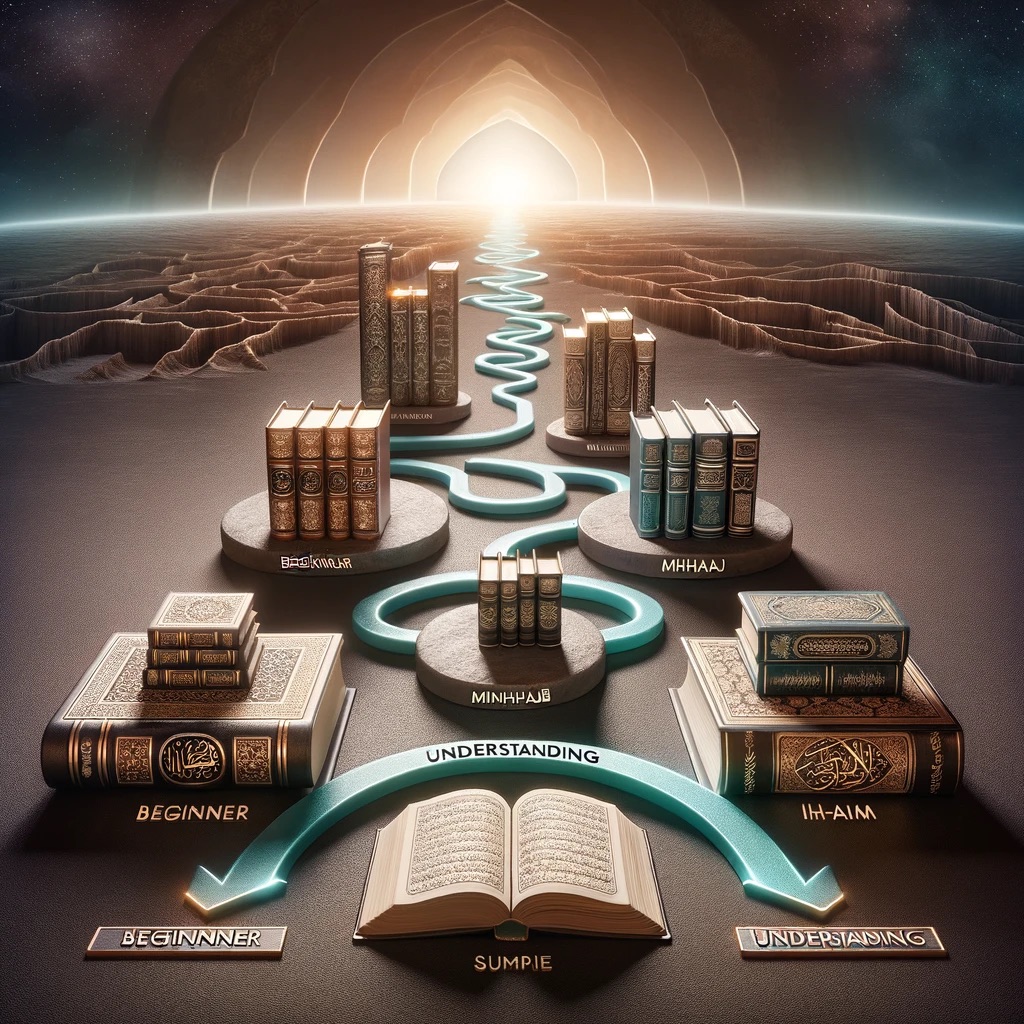Two Books To Aim For If You Want To Grasp Usul al-Fiqh

The study of Usul al-Fiqh in English presents a formidable challenge. Here are some directions for those who can read Arabic and have some experience studying Usul al-Fiqh. Note: See Imam al-Haramayn’s “Waraqat” as a beginning. Master it and move on without wasting too much time.
The foundation of non-Hanafi Usul al-Fiqh largely rests on two texts: “al-Mahsūl” by Fakhr al-Din al-Razi, referred to as the Imam, and “Ihkam” by Imam al-Amidi. Both are cumbersome and require some sifting. However, there is hope.
Razi’s work is succinctly summarized in al-Baydawi’s “Minhaj,” which is derived from two works that encapsulate Razi’s contributions, while al-Amidi’s work was explained twice by Ibn Hajib: the first being quite large; the second, known as the Mukhtasar, is smaller, but demands a teacher.
Make al-Baydawi’s Minhaj and Ibn Hajib’s Mukhtasar your targets. Studying them will equip you with the essential knowledge needed to grasp the picture of Usul al-Fiqh from the perspective of the Mutakallimin. For that reason, since 1924, al-Baydawi’s “Minhaj” has been a required subject at Al-Azhar, replacing “Jam’ al-Jawami’.
Here are some good lessons on both texts. Usul al-Fiqh can get exhaustive, and an unfocused teacher may go off on tangents, wasting time. I learned to find teachers who were qualified, buy also stayed focus on the objective at hand: learning the subject matter:
- Minhaj: https://youtube.com/playlist?list=PL6Xq9GdNm1ePZM2Bxy11PYiLjdFMfdxj6&si=IFimDZohE-MwCvcX
- Mukhtasar: https://youtube.com/playlist?list=PLtmYkyY8ieMYZbH68wIYSca2tQR7VgoV7&si=Oo1MPb2rmUG62Wff
There are other texts you should explore after the Waraqat before advancing to the ones mentioned above. For those studying within the Maliki framework, consider Sheikh Abdul al-Hamid Badis’ introduction to Usul al-Fiqh. This work is outstanding, organizing fifty essential topics for gaining familiarity with Usul al-Fiqh. Additionally, Imam Ibn al-Qassar’s introduction to Usul al-Fiqh is remarkable, delving into some of the philosophical discussions that appear later. By the grace of Allah, I have translated both of these texts, and once they are edited, I hope to publish them and teach them at my school. Finally, the Waraqat serves as a summary of al-Shirazi’s Lum’a, providing a solid foundation that prepares you for more advanced texts. Feel free to move to it, also.
